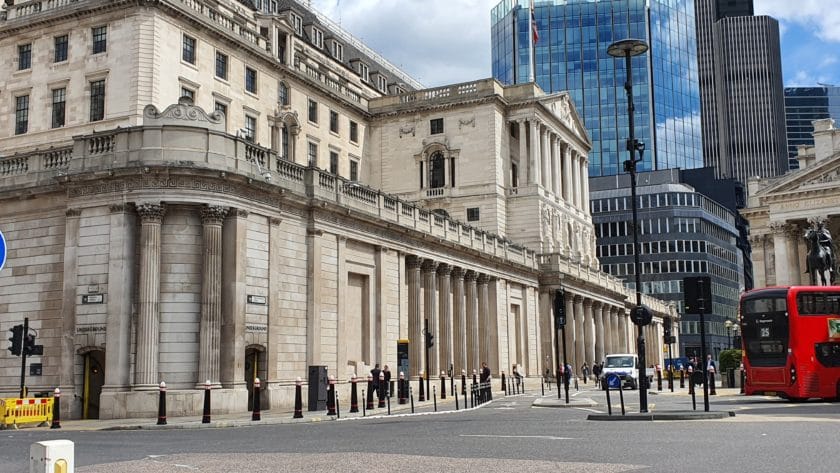The Bank of England held interest rates steady at its final Monetary Policy Committee meeting of 2023 last Thursday, as part of a ‘higher for longer’ narrative, meaning UK investors may have to wait longer for an equities rally.
It marks the third month in a row that the UK rate has remained unchanged at 5.25%, after Committee members voted 6-3 in favour of maintaining the rate. Three members preferred to increase the rate by 0.25% to 5.5%.
The announcement closely followed the Federal Reserve’s decision to hold US interest rates steady, while pencilling in at least three rate cuts in 2024.
However, the Bank of England stopped short of suggesting cuts next year. Instead, it said it will continue to closely monitor “indications of persistent inflationary pressures” and resilience in the economy as a whole and said monetary policy will need to be “sufficiently restrictive for sufficiently long” to return inflation to the 2% target sustainably in the medium term in line with the Committee’s remit.
Lindsay James, investment strategist at Quilter Investors, said the Bank’s cautious approach will raise a question mark over when a rate cut can be expected.
James said: “Investors have been pricing in several reductions throughout next year but the Bank of England has doubled down on its ‘higher for longer’ narrative.
“The Bank faces a considerably more difficult economic outlook than the Fed, with inflation still more than double its 2% target and GDP missing estimates and contracting 0.3% month-over-month in October, heightening the risk of a recession. Two years on from its first rate hike of this cycle, however, it is clear the Bank’s efforts are starting to take real effect and calls for cuts will only grow stronger should the economy continue to weaken.
“While we are already witnessing just how much markets can rally at the prospect of US rate cuts, it seems that in the UK more patience will be required.”
Felix Feather, economist at abrdn, echoed the sentiment: “There’s clear evidence members are still a fair way away from embracing cuts. Hawks on the Committee remain concerned about the UK’s very elevated wage growth and the upside risks to the wage outlook posed by the recently announced increase in the national living wage.”
Feather said he expects the Bank will eventually have to sharply cut rates, but with credibility concerns and persistent inflation risks still at the forefront of MPC members’ minds, it does not forecast a first cut until the middle of 2024.
William Marshall, chief investment officer at Hymans Robertson Investment Services, said that while investor focus has moved to interest rate cuts, the MPC will try to “reign in” the market.
“Any overblown expectations of several rate cuts next year will likely weaken the pound and could once again exacerbate the inflation problem. Latest consensus forecasts doesn’t have the inflation rate falling below 3% until next April and the Bank of England’s own projections don’t expect them to meet their 2% target until 2025,” Marshall said.
“Labour market pressures are only easing slowly so for this and other reasons the Bank of England will likely be behind both the Federal Reserve and European Central Bank in cutting rates next year,” he added.





























